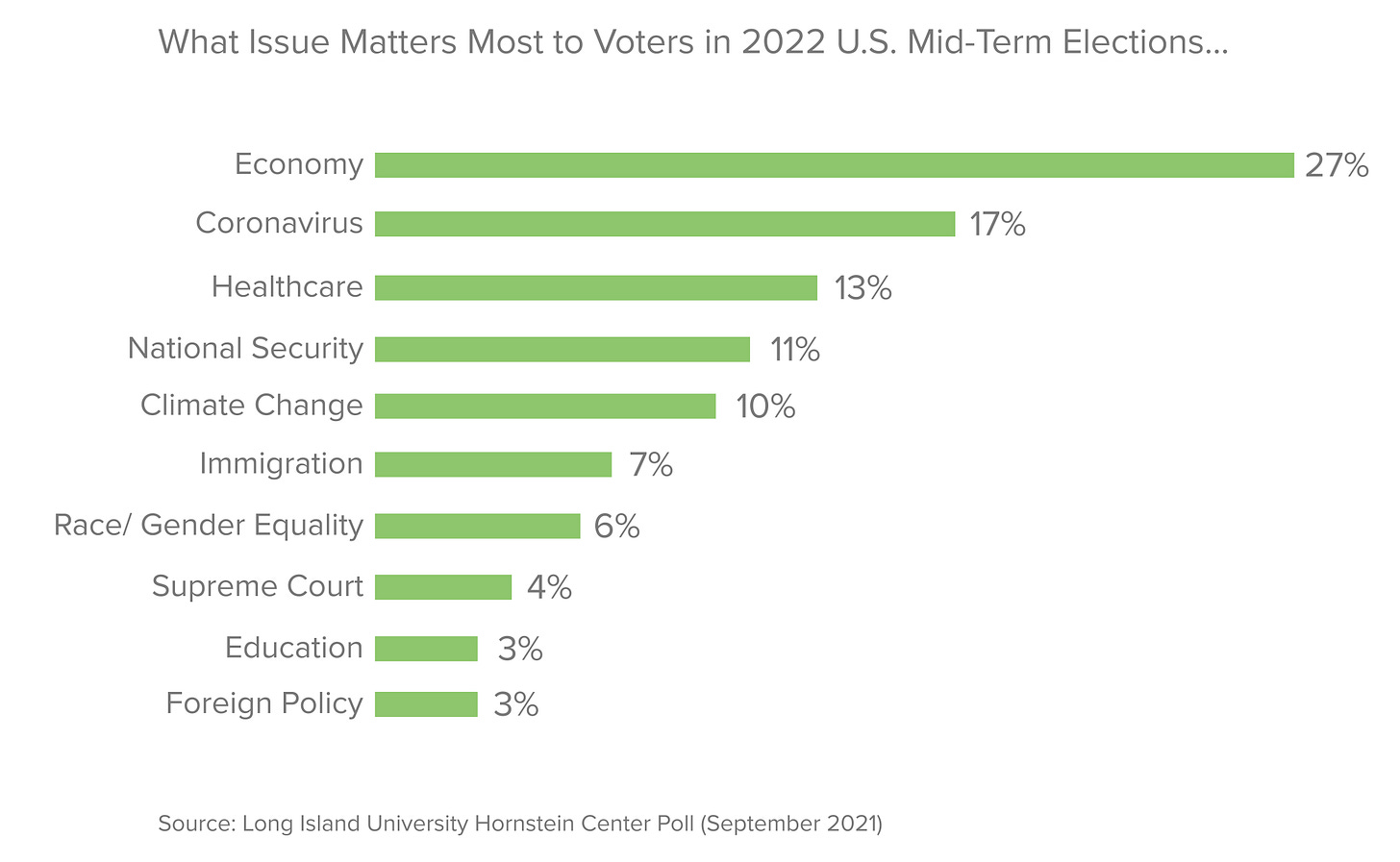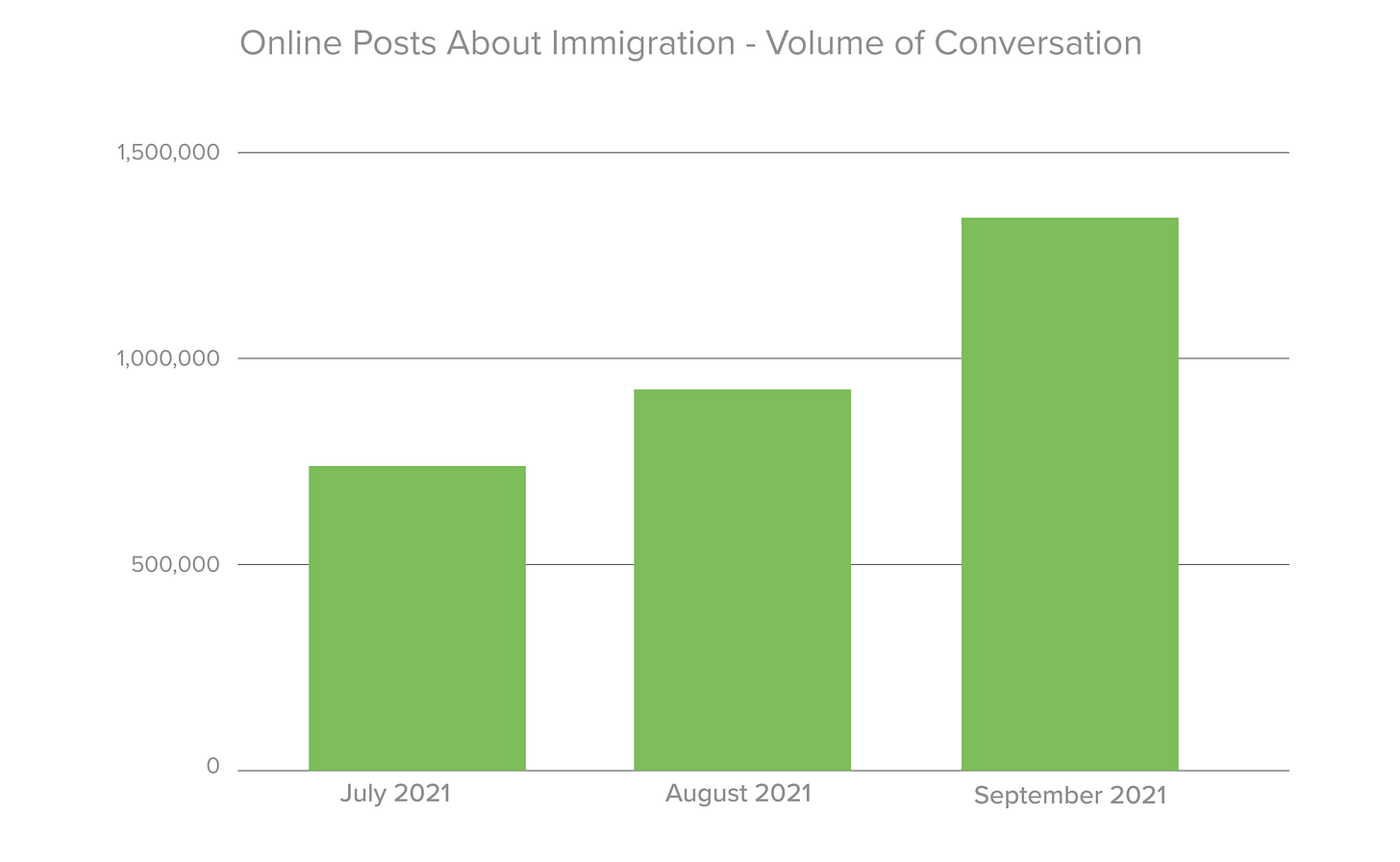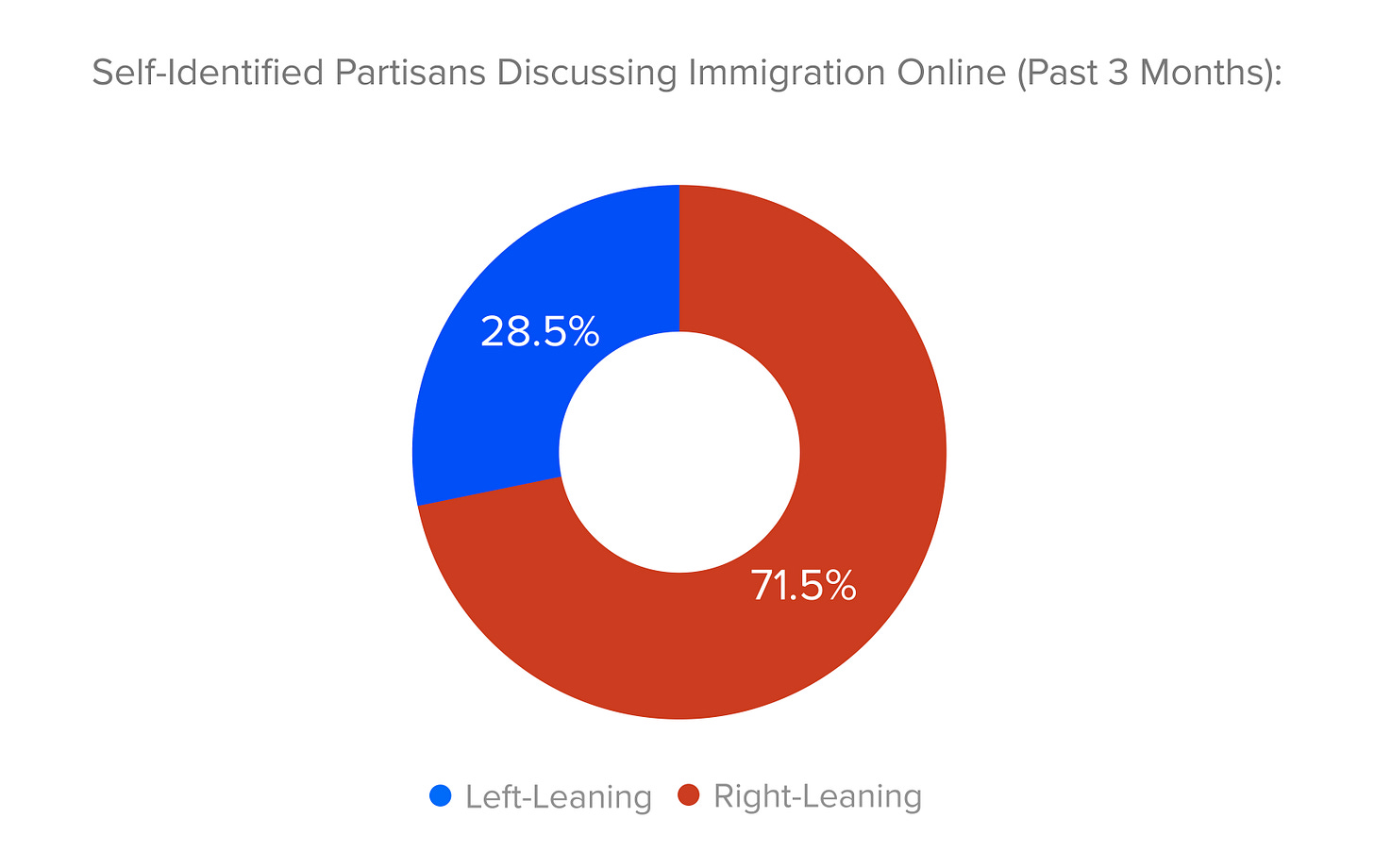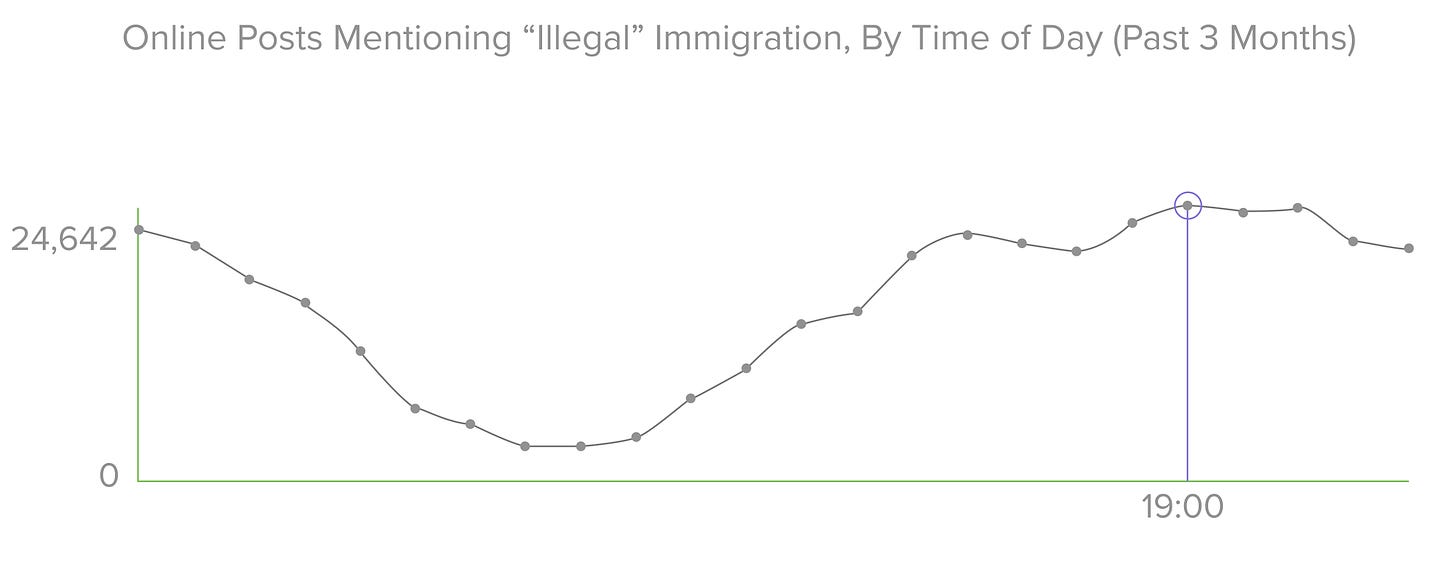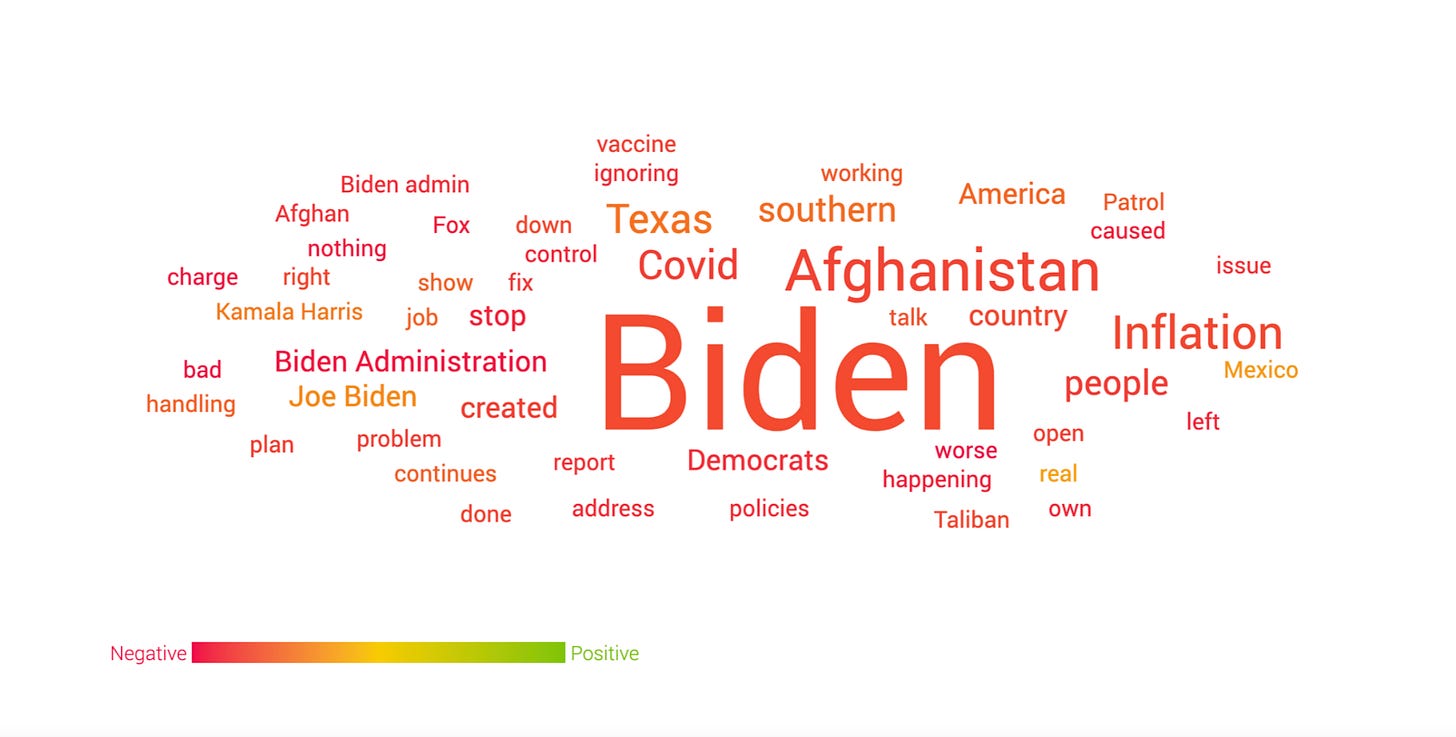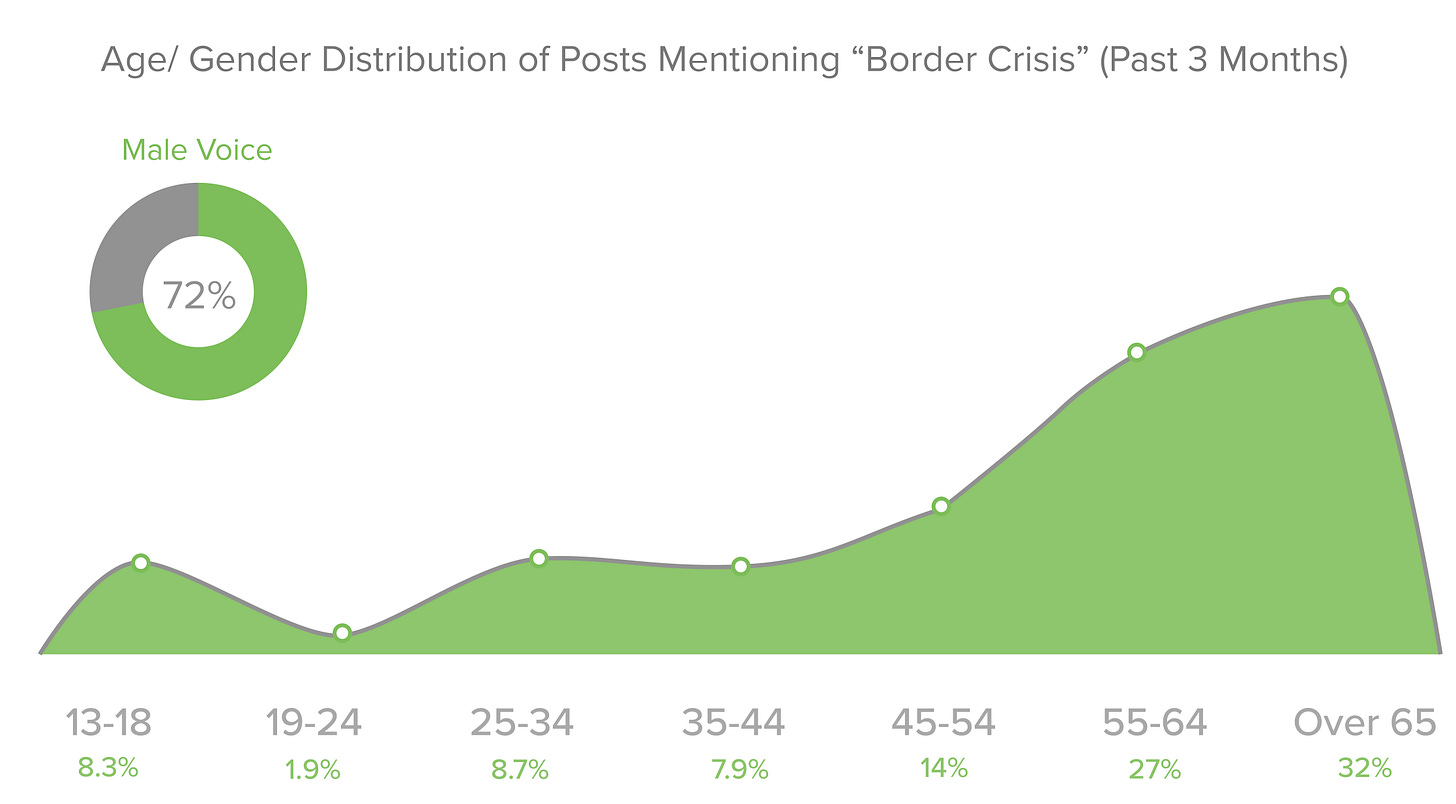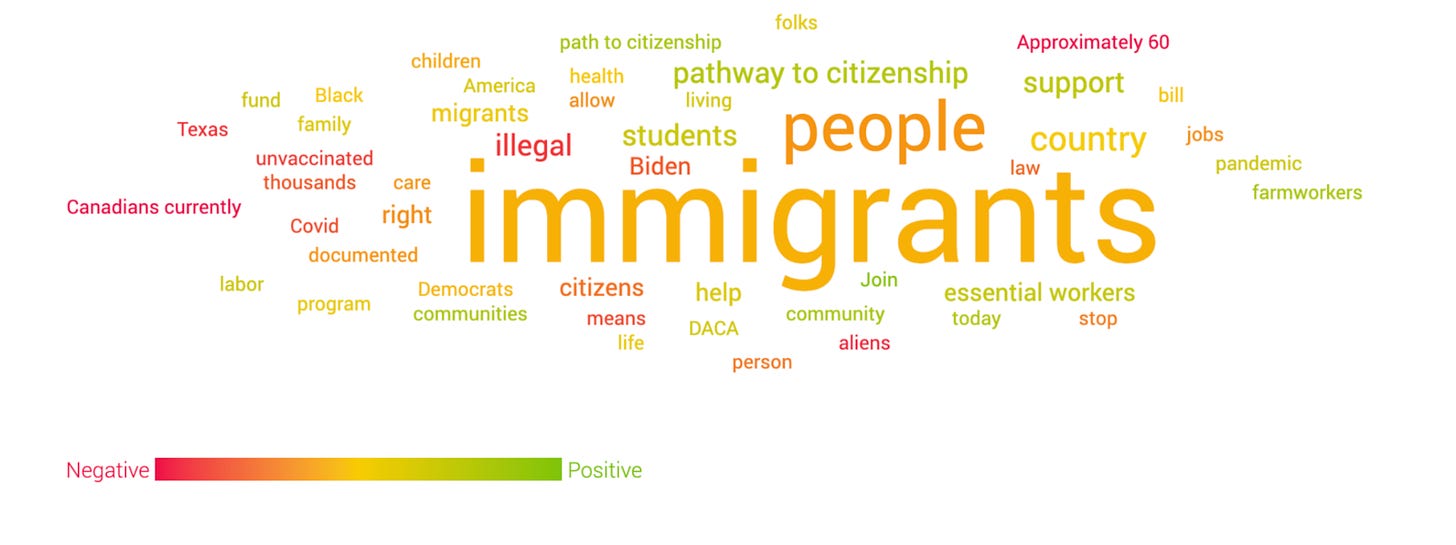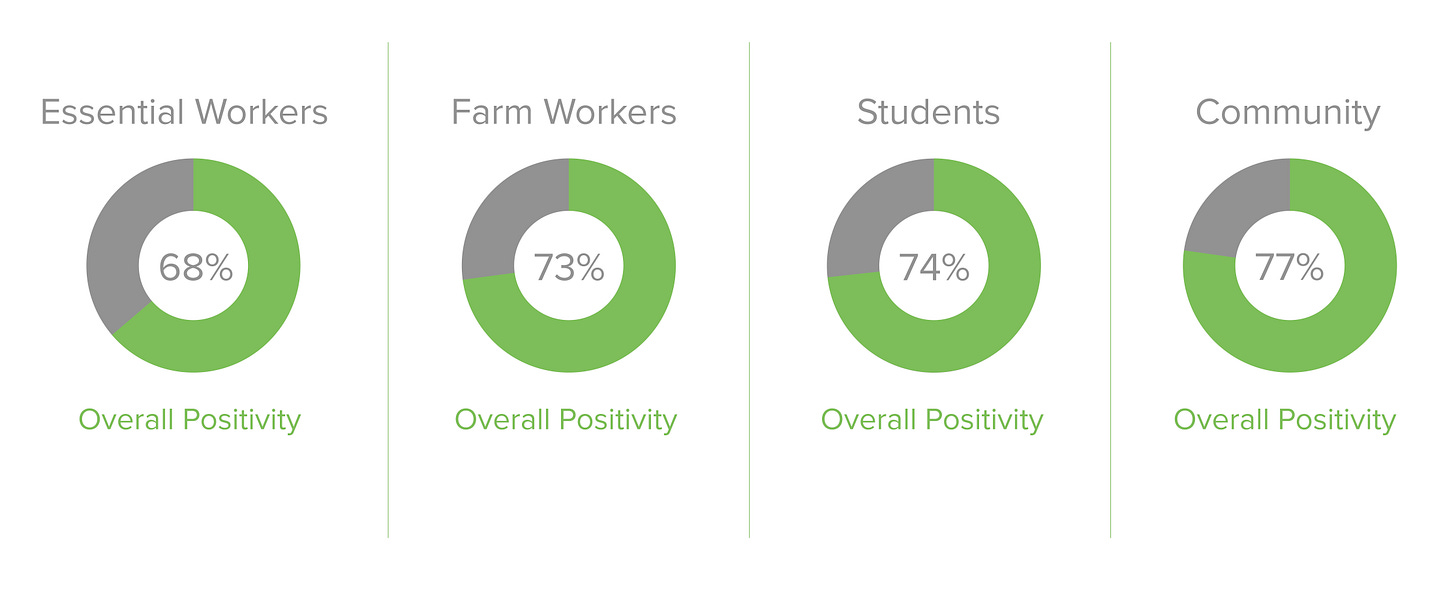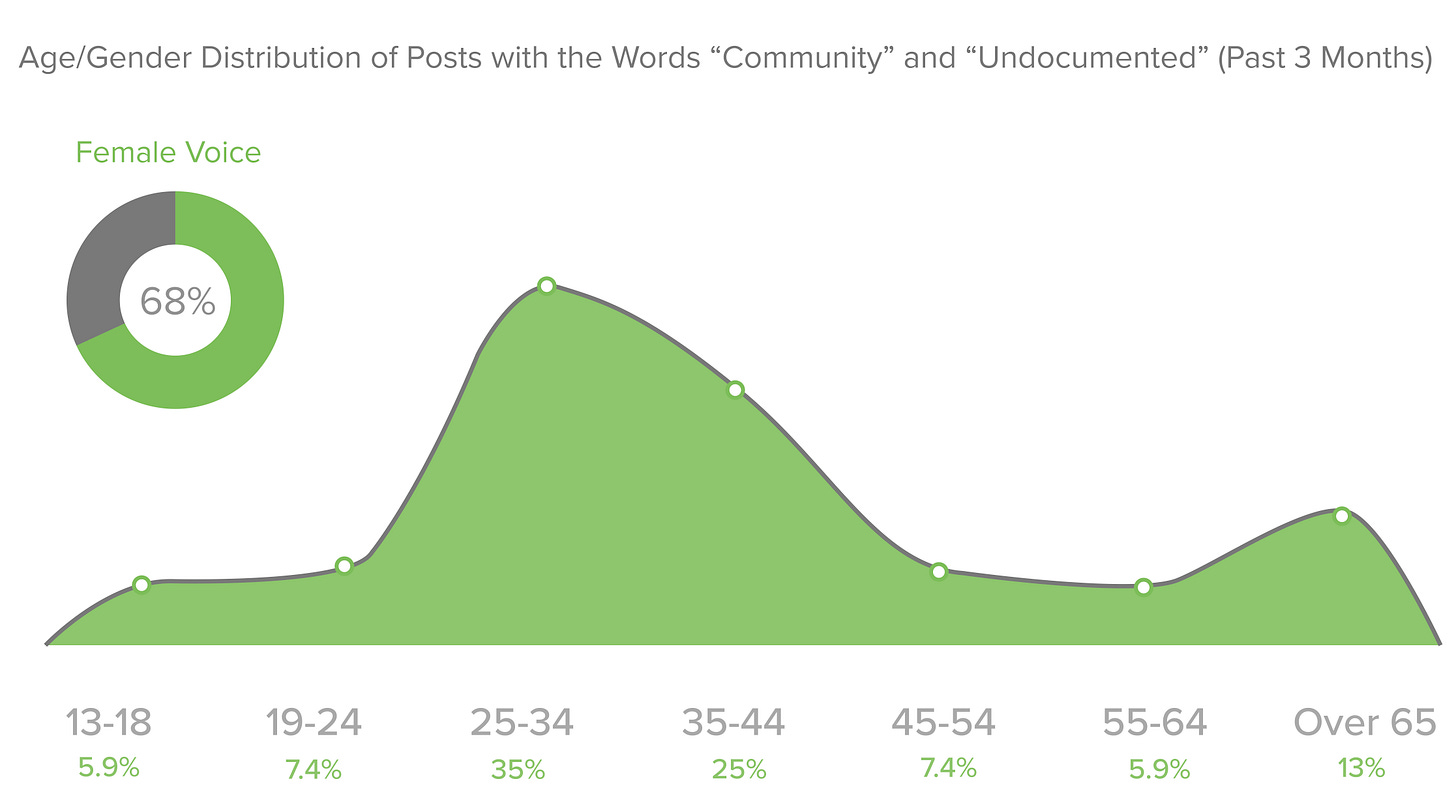Immigration Is Probably Going To Matter In 2022 More Than We Think. Here’s How Democrats Can Win On It.
We looked at over 3.03 million online messages to understand how communicators can persuade voters to support Democrats on immigration reform.
Welcome To What The Polls Don’t Tell Us! You’re receiving this biweekly newsletter because you have worked with Main Street One in the past, or you have asked to be added to our distribution list. Subscribe here. Learn more about Main Street One’s work here.
BIG TAKEAWAY: Americans express the most positivity about immigration when talking about the role immigrants play in their communities.
When undocumented residents are described as students or essential workers or farmworkers or families, positivity soars.
The word community is the most positive word in the conversation.
The conversation is most negative (and most right-leaning) when talking about the “border crisis” - which is strongly associated with President Biden.
SLEEPER TAKEAWAY: Democrats won’t neutralize this issue by pledging to be “tough” on border security - this only frames immigrants as outsiders.
What will move voters in 2022? If polls are to be believed, the race will be fought over a fairly routine issue slate consisting of jobs, economy, and healthcare concerns, plus any lingering Covid-related problems that may still be relevant.
That’s what the latest survey from Long Island University’s Hornstein Center tells us:
Yet, what the polls won’t tell you is that there is a growing undercurrent of conversation almost entirely from the right side of the spectrum, focused on an issue that only clocks in at 7% in the poll above: immigration.
This chart shows the growth in overall conversation about immigration over the past 3 months:
And this conversation is being driven by the right - self-identified partisans on the right are more than 70% of the total share of all self-identified partisans in this discourse:
Fox News’ prime time focus on the “border crisis” is surely having an effect here - posts mentioning “illegal” immigration peak between 7 and 9 PM EST (Tucker Carlson’s show, which has been especially critical of Biden on immigration, airs at 8PM EST/7 PM CST, and is followed by Sean Hannity’s program, whose rhetoric is similar):
The phrase “border crisis” itself is nearly synonymous with President Biden - here are the most common words appearing in posts using that phrase over the past 3 months:
Most common words appearing in posts with the phrase “border crisis” (past 3 months):
The “border crisis” conversation also skews extremely male and extremely senior:
But a shift in language brings out an entirely different set of responses. Here are people talking about “undocumented” residents:
Posts referring to “undocumented” residents (past 3 months)
This is probably not news to most Democratic communicators - referring to “undocumented” residents has been standard rhetoric on the left for much of the recent past. However, take a look at the words related to communities and the roles that undocumented workers play in those communities:
In fact, the demographics of the word “community” within the conversation about “undocumented” residents are almost the opposite of the “border crisis” conversation - women and people under 35 command an outsize share of the discussion:
What’s going on here?
Rhetoric that frames immigration policy as a question of securing the border first automatically frames immigrants as outsiders, and virtually ensures the conversation will be dominated by conservative older men. Rhetoric that frames immigration reform as a way to strengthen communities places immigrants within the fabric of our society and draws out Americans who are demographically much more likely to support Democrats in securing a pathway to citizenship for the undocumented.
Bottom line: While the Fox News senior male demographic might not be persuadable, changing the conversation from border security to the roles that undocumented residents already play in our communities gives Democrats a chance to appeal to more friendly voters. Democrats shouldn’t engage on Republican turf - rather, they should define the immigration debate as one that affects not just the border, but every community in America.




